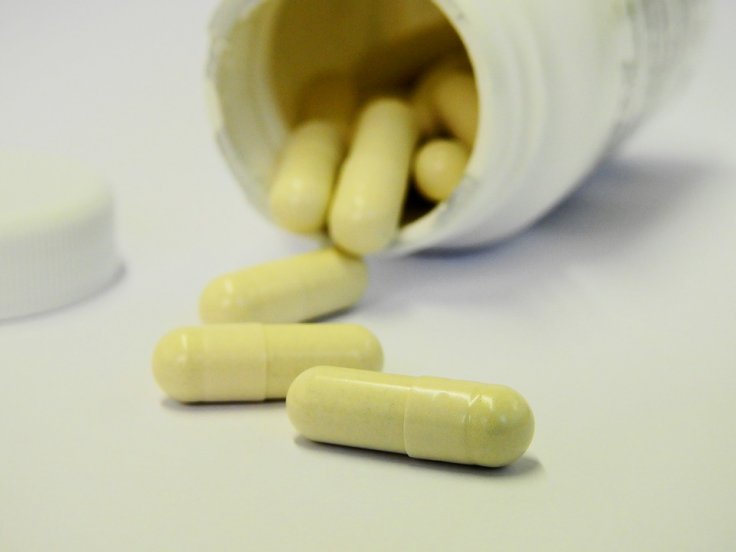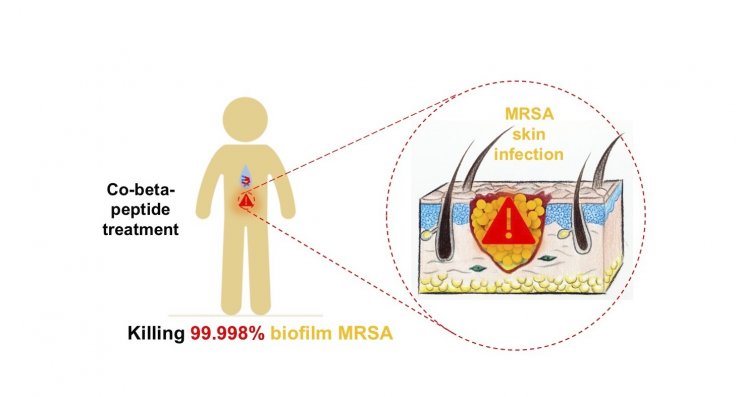Experts at Singapore-MIT Alliance for Research and Technology (SMART), which is MIT's research enterprise in the island nation and Nanyang Technological University (NTU) have jointly designed an antimicrobial polymer that is capable of killing bacteria resistant to commonly used antibiotics, including the superbug Methicillin-resistant Staphylococcus aureus (MRSA).
Researchers believe that this endeavor can widespread the way for the development in medicine to which the bacteria have a significantly slower rate of developing resistance and help prevent hundreds of thousands of deaths each year caused by such drug-resistant bacteria.

The new polymer
In a WHO report, it was revealed that the Increasing resistance to antimicrobial medicine is a cause for serious concern with at least 700,000 deaths each year caused by drug-resistant infections and diseases.
It should be mentioned that only in the US there is an antibiotic-resistant infection acquired every 11 seconds, while a related death occurs every 15 minutes. While alpha-peptides have long been used to treat resistant bacteria such as Methicillin-resistant Staphylococcus aureus (MRSA) they tend to be rather unstable or toxic in the body.
The researchers from NTU and SMART tested the use of beta-peptides to fight such bacteria in living beings. In a recently published paper, it was revealed that the newly created polymer has designed for stability. This innovative polymer degrades slowly in the body, giving it more time to work and it has little to no toxicity impact.
NTU expert explains
Dr Mary Chan-Park, SMART AMR Principal Investigator and Professor at NTU's School of Chemical and Biomedical Engineering, said that "Typically, antibiotics don't work on various forms of bacteria like biofilm and persistent bacteria as they become resistant. We are therefore really excited that our new beta-peptide polymer has shown great promise in combating existing antibiotic-resistant strains of bacteria."
Moreover, it has also proven its lethality against biofilm and persistent types of bacteria, which current antibiotics have limited action upon, explained Chan-Park.

The future development
The next step for the research is to test the polymer on animals infected by MRSA in pig farms and meanwhile, the researchers are also preparing to have the drugs tested in clinical trials for use for the public.
Dr Kevin Pethe, Associate Professor at the Lee Kong Chian School of Medicine at NTU described it as a promising new approach to combating antimicrobial resistance and as an unprecedented procedure. The toxicity and proof-of-concept studies have shown that this can be on the drug development path as it shows good potency and low toxicity. "We look forward to having this developed as a topical drug for humans," he said.
Antimicrobial Resistance (AMR)
Earlier, the British government published an action plan and long-term vision for AMR to engage internationally to contain and control it by 2050. Similarly, Uganda National Action Plan (NAP) includes strategic objectives to reduce AMR including promoting public awareness, as well as training and education, improving infection prevention and control; promoting optimal access and use of antimicrobials; surveillance; and research and innovation.
It is likely that some countries in the future will invoke World Trade Organization rules to block food imports from countries that do not exhibit sufficient AMR control. To deal with the issue, countries worldwide are trying to assess the current situation and its occurrence in microorganisms.









